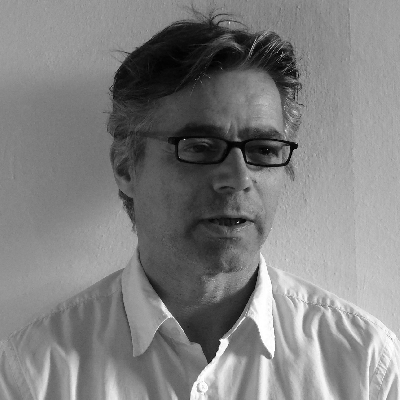“Giaura stems from the ancient Greek words for earth and air” says Max Beaumont, the 30-year-old founder of the company, “because it turns the Earth’s biggest waste stream, namely CO2, to a resource. And by doing so it may generate a profitable and sustainable business.”
The origin of Giaura is breathtaking: recycling of exhaled, CO2 rich air back to initial conditions... for astronauts in spacecrafts.
Maintaining an appropriate gas mixture is key to the survival of astronauts as they spend long periods on international space missions. Furthermore, CO2 extractors must both be compact and highly efficient in order to save energy. Accordingly, over a period of 15 years and with a budget of 70 million euros, ESA, in partnership with other space agencies including NASA, developed many of the initial groundbreaking solutions. One of the most successful ones involves the use of tiny porous beads about 3 mm in diameter. The beads offer a contact surface area of 250/350 square meters per cubic centimeter covered with a special substance that “captures” CO2 as the air flows through the beads. As soon as the beads are saturated, they can be “cleaned” and the CO2 harvested. In space, the cleaning process or “regeneration” of the beads takes just over 11 minutes and uses the solar energy produced by solar panels on the spacecraft.
Former ESA staff members Max Beaumont, master degree in physics, Alexander Gunkel, master degree in business and mechanical engineering and Bardia Alaee, sustainability marketing expert, decided to bring this concept down to Earth.
Supported by ESA’s incubator program (www.esa.int), the European Institute of Innovation and Technology’s Climate-KIC program (eit.europa.eu/eit-community/climate-kic), YES!Delft (an initiative by Delft University of Technology, The City of Delft and TNO Companies) and award winning start-up accelerator Startupbootcamp (startupbootcamp.org), they adapted the technology to terrestrial conditions, developed a prototype and found their entry market. As a result, today, Giaura is the first company to have a commercially viable product capable of capturing CO2 directly from the ambient air. Furthermore, its four direct competitors in Direct Air Capture (DAC) – including Bill Gates’ Carbon Engineering – are still a few months away, if not more, from working out a definitive commercial product.
Giaura has managed to turn spacetech into cleantech, both in practical and, most importantly, in economic terms. The regeneration of the CO2 filtering beads operates at temperatures between 60 °C and 100 °C while capturing between 0.5 and 8% CO2 (per weight) depending on the carbon dioxide concentration in the surrounding air. Hence, the cost of adopting and running the new technology has become reasonable.
The next step consisted in developing a similarly innovative business concept to ensure the diffusion of the technology. However, it appears that, here on Earth, the best way forward is to pick among the most successful existing business models. The best candidate is the Intel model: it provides chips for computers just as Giaura intends providing its CO2 capture technology for everyday products. Hence, licensing and partnership agreements are at the heart of the firm’s strategy.
By then, the team of young entrepreneurs raised first private investment and attracted a solid group of advisors comprising: Richard Hsieh, a Harvard economist who acquired 18 years’ experience in global investment banks; Stef van Grieken, an inspiring entrepreneur and Google program manager; Ivo de la Rive Box, who augmented technical know-how by providing experience on smart thermostats; Martijn Arts, a major Dutch marketing expert; and Matthijs Ingen-Housz, a dynamic lawyer who is a world reference on private equity and startups.
Because many industrial processes require carbon dioxide, the field for application developments is extremely vast. The following partial list will give an idea of its breadth: pharmaceuticals, food processing and preservation, wine making, coffee decaffeination, Enhanced Oil Recovery (EOR), beverage carbonation, horticulture (greenhouses), gas purification, bio-fuel production, steel manufacturing, metal working (welding), pulp and paper processing, fire suppression, water treatment, electronics, pneumatics, polymer processing and scuba diving. Nevertheless, the emerging DAC technology is still considered expensive in comparison with conventional methods of supplying CO2. This is why an innovative market approach is required which includes growing from markets with low CO2 requirements into bigger ones, step by step, while advancing the capabilities of the technology.

Accordingly, the Giaura team established a three-step market development strategy. Step one involves the establishment of a licensing agreement, which is now being finalized, with a major player of the aquarium industry. There are over 15 million aquariums in Europe and most of their owners are keen to watch their fish swim in the midst of lush vegetation. As vegetation flourishes, they confront with dwindling levels of carbon dioxide that is soaked up by photosynthesis. Soon this causes the vegetation to falter. A sad result given the care and attention deployed by each affectionate owner. The device developed by Giaura solves this problem by extracting CO2 from the surrounding air and pumping it into the aquarium. Estimates are that, only by covering a fraction of the actual market, this initial market holds a revenue potential in the order of 24 million euros.
Step two is more ambitious but no less realistic in terms of practical impacts. It involves adding a Giaura chipset within air conditioning systems. Although air conditioning is a net contributor to atmospheric CO2 build-up and global warming, it is here to stay since it contributes maintaining optimal living and working temperatures in otherwise overheated ambients. Not only, by including the Giaura solution, air conditioning will further improve indoor living and working conditions by preventing excess CO2 build up in confined environments. Typically, an excess proportion of CO2 causes lack of concentration, headaches, dizziness and even nausea. In rare but extreme working conditions, it may lead to unconsciousness and death. In most cases, the lighter of these symptoms are not associated with indoor CO2 buildup (i.e oxygen decrease). Needless to say, this market is huge and interests companies such as Philips, Quby and Honeywell. A prudential estimate values it at about 178 million dollars.
The third step is bolder. It involves the development of a Giaura product solution for the biofuel market. Closing the loop by capturing carbon dioxide, and turning it into a fuel, stands as the ultimate solution to many of our problems. Its economic implications are breathtaking. The Giaura startup is a young team, built around a space-proof technological innovation tied into an earth-proof business model. It is clearly setting the new frontiers of innovation.
Info
Images above: nasa.gov



